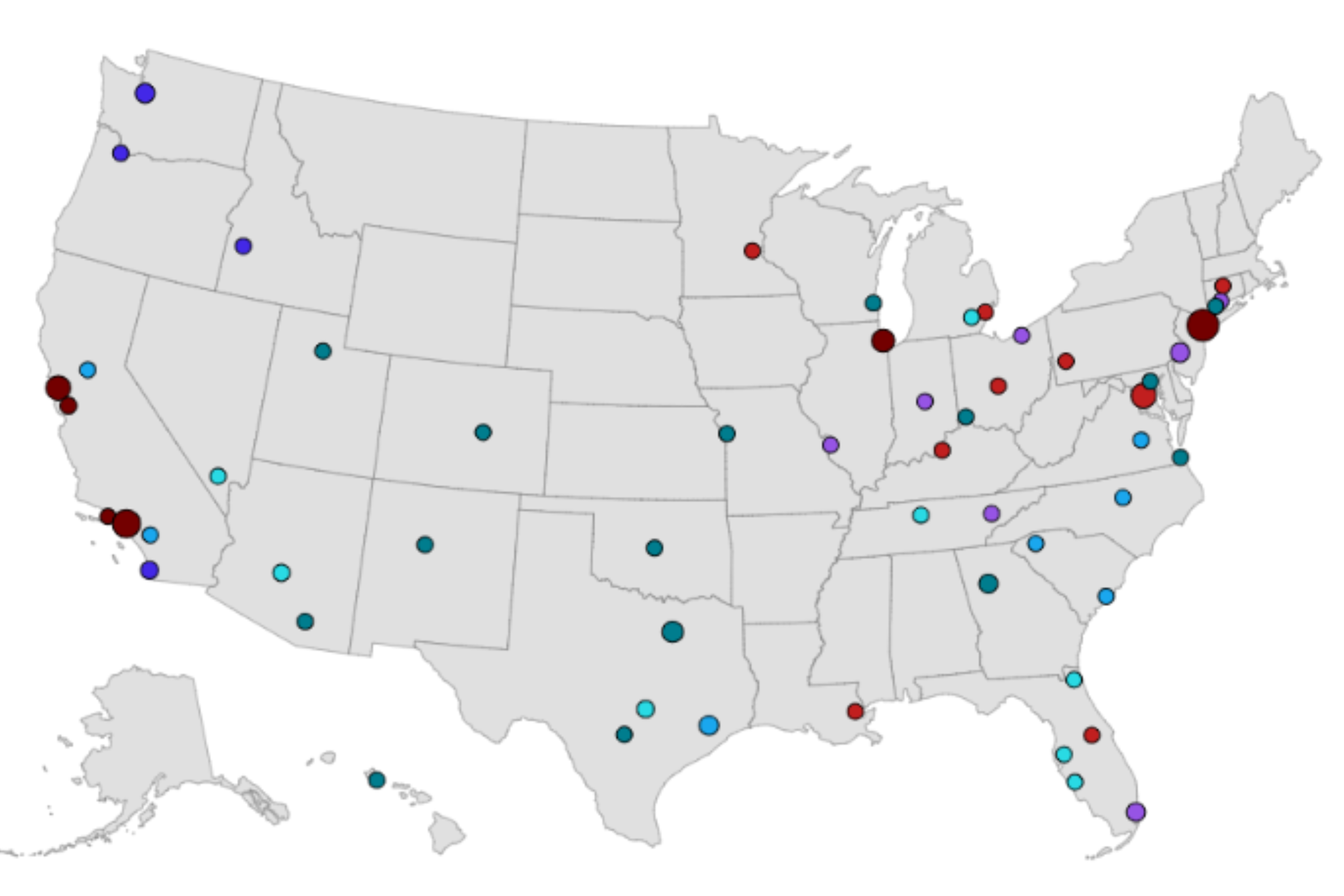With his rimless glasses and black-leather loafers, 36-year-old Amar Hakim evinces a certain clerical chic. The young cleric is soft-spoken and articulate, a marked contrast to his rabble-rousing contemporary, Moqtada al-Sadr. On a 2005 visit to Washington, he charmed U.S. congressmen and columnists alike with his admiration for how Lincoln had saved his republic from civil war. "I don't want to say he's necessarily a young Lincoln or Jefferson," says a U.S. official in Baghdad who wasn't authorized to speak on the record. "[But] people seem to feel he's wise."
That should be cause for hope, since Hakim now leads the most powerful Shiite party in Iraq, the Supreme Islamic Iraqi Council. As U.S. Gen. David Petraeus constantly emphasizes, the U.S. troop "surge" can at best dampen the violence that plagues Iraq. Only the country's political leaders can truly stabilize the situation, by using that breathing room to forge lasting compromises between Iraq's various factions. The fact that they have not is at the core of growing Republican disillusionment over the war. "That government is simply not providing leadership worthy of the considerable sacrifice of our forces," Sen. John W. Warner, the ranking Republican on the Armed Services Committee, declared last week. The hope of a more enlightened, younger generation of Iraqi leaders is a tantalizing one.
But in Iraq, Amar Hakim has a darker reputation. When he ran his family's multimillion-dollar foundation, he had a habit of rolling through Baghdad in a convoy of flashy SUVs, surrounded by a scrum of bodyguards and hangers-on. Like his father, Abdelaziz al-Hakim, who is currently receiving chemotherapy for lung cancer in Tehran, he has close ties to Iran. (Amar was arrested by U.S. forces earlier this year coming across the border from Iran to Iraq, although then-U.S. Ambassador Zalmay Khalilzad quickly apologized.) He has pushed hard for greater regional autonomy, in order to create an oil-rich, Shiite-dominated superstate in the south. Critics, many of them Sunni, have nicknamed him "Uday Hakim," after Saddam's corrupt and sociopathic son.
The problem is that Iraqi politicians like Hakim may share a goal with Washington—saving the republic—but disagree on means. The young Hakim has fiercely resisted a revision of the de-Baathification law, a key "benchmark" to promote reconciliation with Sunnis, on the grounds that it may allow former regime elements back into official positions. Saddam's thugs killed nearly two dozen of his family members, and their portraits still adorn party offices. Amar himself has survived 13 assassination attempts, presumably by Sunni insurgents. "Are the Nazis in Germany allowed now to get sensitive jobs?" he asks.
Hakim and his party do support Prime Minister Nuri al-Maliki, Washington's great hope in Iraq. But neither are they shy about their sectarian loyalties. "Amar Hakim does not differ from others who use religion as a means to get political gains," says Laith Moussawi, an Iraqi history professor. Hakim spent the bulk of his youth in exile in Iran, and his views have been shaped by the Islamist government there. During parliamentary discussions on the Iraqi constitution in 2005, he reportedly proposed a motion to rename the country the "Islamic Republic of Iraq."
He is perhaps most closely associated with the push to create a southern "Shiastan." Fellow Shiite Sadr opposes the idea, and his followers have clashed repeatedly with Hakim's. The rivalry between the Hakim and Sadr families is decades old. But Hakim insists that the violence would quiet down if the region were granted more say in its own affairs. "We believe that this step will unite Iraq, not divide it," he says. "It will put an end to the Iraqi Shiites' historic feeling of being marginalized."
He also downplays the rivalry between the two families, pointing out that his father studied with Moqtada's father and that his mother is from the Sadr family. He met Moqtada in Najaf after the fall of the regime. Asked whether it was a political or religious gathering that brought them together, he replied, "Relatives don't need any special occasion to meet." Like many of Hakim's statements, the sentiment is refreshing. Whether it translates into any real reconciliation, however, remains to be seen.
Uncommon Knowledge
Newsweek is committed to challenging conventional wisdom and finding connections in the search for common ground.
Newsweek is committed to challenging conventional wisdom and finding connections in the search for common ground.
About the writer
To read how Newsweek uses AI as a newsroom tool, Click here.








